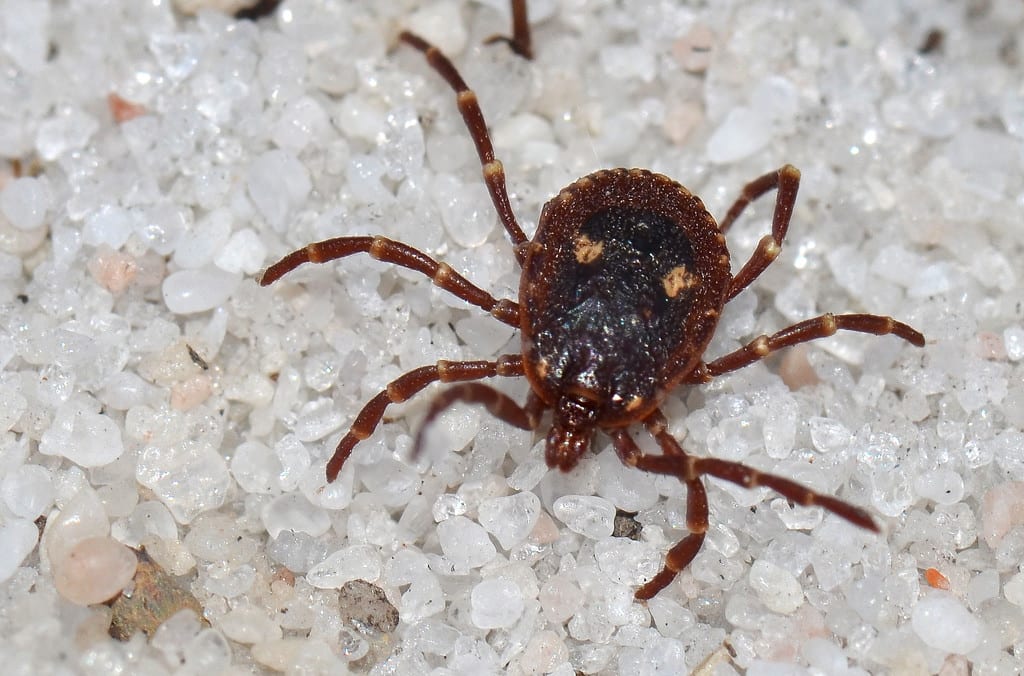My dog has red spots on his belly
Dogs are frequently subject to skin conditions, which are usually not serious, but can be a source of concern for the owner. Most of the time, pimples are accompanied by itching, a more visible symptom that is often the first to alert the owner.
In the case of the appearance of small red spots on your pet's belly, it is possible to suspect several common causes. Nevertheless, only a visit to the veterinarian will allow to make a definitive health diagnosis and to set up an adapted treatment.
In the meantime, here is more information on the skin conditions that can cause small red spots on your dog's belly!
Dog pimples: what are they, how to recognize them?
What is commonly called a "pimple" is actually a symptom of a skin condition that can be due to multiple causes. The term "pimple" can refer to various skin abnormalities, such as redness, cysts or scabs.
In the strictly medical field, the term "pimple" corresponds to different types of skin lesions: nodules, macules, vesicles, papules and pustules. Papules and pustules are the most common pimples in dogs. Papules are small elevations of the dermis, less than 0.5 cm in diameter and pink or red in color.
Pustules are very similar to papules except that they contain a purulent fluid.

Causes of red spots on the dog's belly
Not only are there many different types of pimples, but there are also many causes that can cause small red pimples to appear on a dog's belly. Not all of these causes are necessarily serious, but some may require medical treatment.
Others may also be a sign of a more serious condition that will require veterinary intervention. In fact, not all pimples are related to skin diseases, but can occur as part of diseases affecting the entire body of the animal.
Superficial pyoderma
Superficial pyoderma is an extremely common condition in dogs that manifests itself as red pustule-like pimples. The pimples are filled with pus and range in color from pale pink to dark red. Usually, superficial pyoderma is accompanied by depilation (loss of hair) and collar lesions.
Superficial pyoderma does not only affect the dog's belly, but it is often easier for the owner to spot the symptoms on the less hairy parts of the dog's body. This pathology is due to a bacterial infection (staphylococcus) and can be treated with adapted antibiotics on prescription of a veterinarian.
Allergies
Allergies can cause red patches on your dog's skin, sometimes very suddenly. Generally, allergy patches cause pruritus, or severe itching in your dog. Red spots that appear on your dog's belly as a result of an allergy can only be properly treated once the cause of the allergy has been identified.
There are a large number of allergens for our four-legged friends: mites, cats, fleas, sea water, food... This last agent is particularly important to take into account, because food allergies are extremely common in dogs.
Dog Scabies
Dog scabies is a common condition in which itchy skin lesions appear on the skin. The condition is caused by microscopic mites that burrow under the dog's skin to lay eggs and burrow into the skin. The itch is the easiest symptom to spot in dog mange, unlike the small red pimples that can be difficult to see in the early stages of the disease if you don't look for them.
These pimples are classified as papules and are extended by small red lines that correspond to the galleries dug by the mites. Contrary to what many owners fear, dog mange is not transmissible to humans. It is, however, extremely contagious between dogs and can develop at an alarming rate in kennels where there is a certain degree of promiscuity between the animals.
If you suspect that your pet has mange, only a visit to the veterinarian can prove this hypothesis and allow you to treat your pet. This pathology can be treated quite well, but must be caught in time to avoid your dog scratching himself to the bone and keeping serious skin lesions.
Atopic eczema
Like humans, dogs can suffer from eczema, a skin condition that causes itching and red patches. There are no real treatments for eczema, especially when it is atopic, and therefore genetic. Your veterinarian may prescribe a lotion to soothe your pet's itching and give you good advice on how to keep your pet's lifestyle healthy.
Atopic eczema tends to flare up during periods of stress, and is over-represented in obese and sedentary individuals. It should also be noted that certain breeds of dogs are predisposed to the development of atopic eczema. This is the case for Bulldogs, Sharpeis, Boxers and many other dogs with very wrinkled skin.
Flea bites
The number one enemy of all owners and their pets, fleas are one of the primary causes of red spots on a dog's belly. Flea bites are very itchy and are most easily seen on hairless areas such as the belly. Flea infestations in dogs have at least the advantage of being relatively easy to treat: the administration of an antiparasitic will do the trick.
In the event of a large infestation, you will also need to clean your home thoroughly to prevent fleas from surviving in your textiles or between the floorboards until they can bite again. Like scabies, dog fleas can only live on dogs... But that doesn't stop them from biting humans every chance they get!
If flea problems may seem benign to some owners, I recommend that you take the bull by the horns as soon as possible to avoid massive and uncontrollable infestations. Moreover, fleas carry serious diseases such as piroplasmosis or ehrlichiosis!

Consequences of red spots on the dog's belly
One of the most visible and noticeable consequences of the appearance of red pimples on the dog's belly is the itching - sometimes very intense - that will lead your dog to scratch compulsively. This itching, when very severe, can cause the dog to scratch himself to the point of bleeding, creating deep lesions, which can become infected and leave scars.
Apart from that, the red spots themselves have no real consequences on your dog's health, but their cause can! To find out what the risks are for your pet and the best way to avoid them, you have no choice but to turn to your veterinarian.
Because there are so many possible causes of pimples on your dog's belly, your veterinarian is the only person who can provide credible answers to your questions.
What should I do if my dog has red spots on his belly?
The appearance of red spots on your dog's belly that are not accompanied by other symptoms (fever, depression, etc.) should not cause you to panic too much. This type of symptom should not be neglected or ignored, and a visit to the veterinarian is the first thing to do.
I strongly advise you not to try self-medication on your dog, whether it is homeopathy, essential oils, lotions or medicines for humans or animals! On the other hand, it is possible to administer an antiparasitic treatment to your dog to eliminate the cause of the fleas.
If the red spots have caused lesions on your pet's skin, however, you should not use pipettes, which should only be applied to a body free of sores. A change of diet can also be made if the symptoms are discreet and you observe a rapid improvement.
In any case, if your dog scratches a lot and seems to be down, I recommend that you don't hesitate a second more before making an appointment with your veterinarian! You now know a little more about the red spots that can sometimes be found on your dog's belly and their potential causes.
However, this article is far from listing all the possible causes for the appearance of red pimples in dogs, because they are extremely numerous! In any case, keep in mind that only the opinion of a canine health professional will be able to enlighten you on the real reason for the appearance of these small papules on the skin of your four-legged friend.
Loving and educating your pet also means protecting it against the hazards of life. This is why we strongly recommend that you take out health insurance as soon as possible. This will save you astronomical veterinary fees in case of accident or illness.


